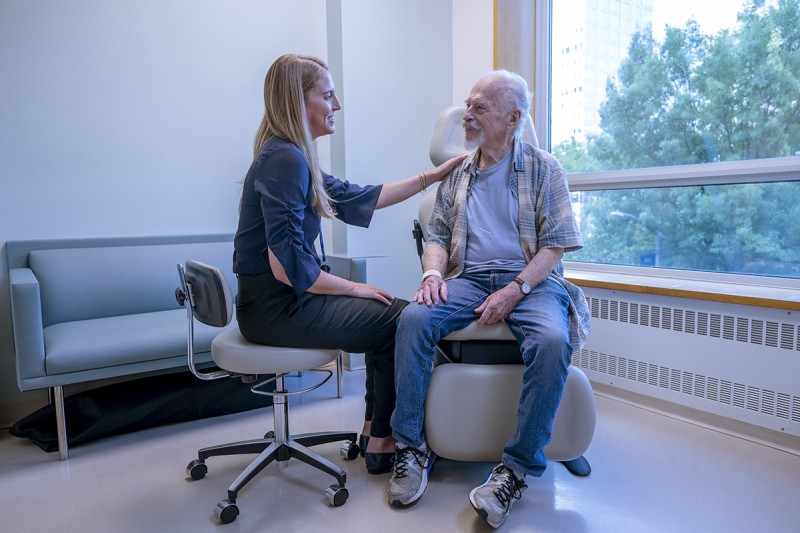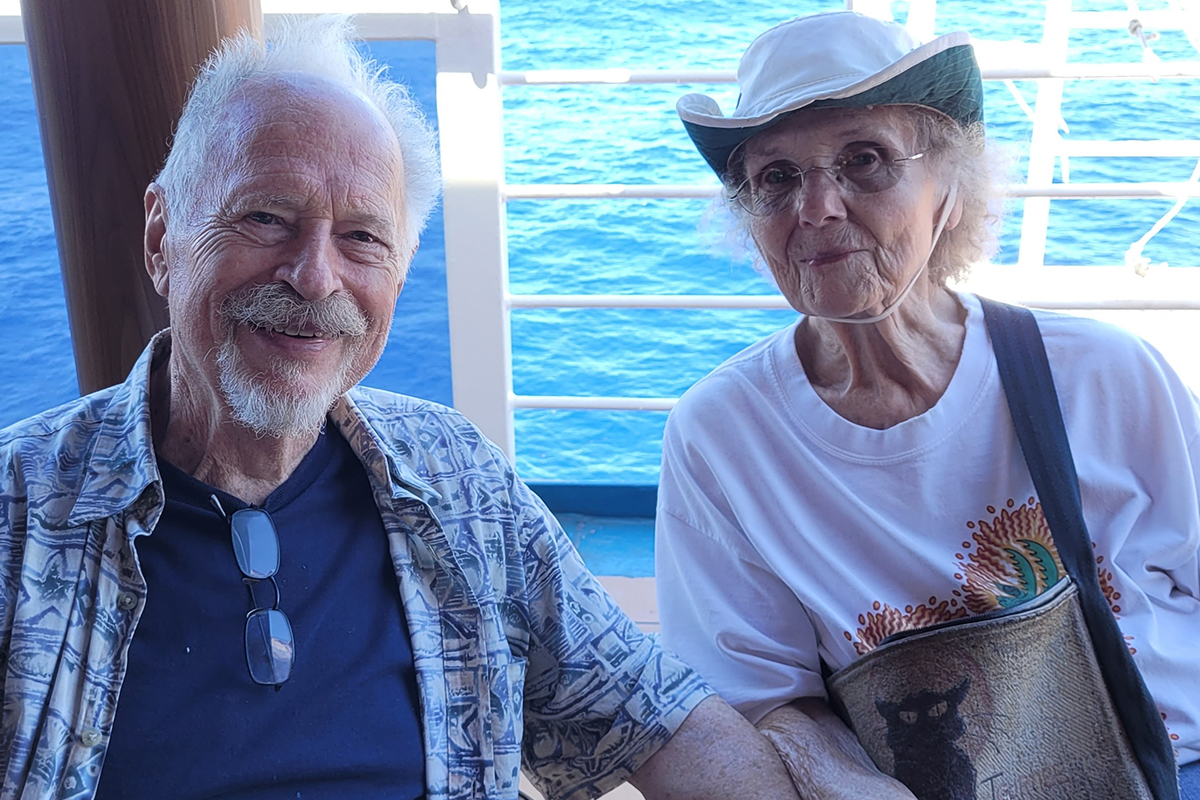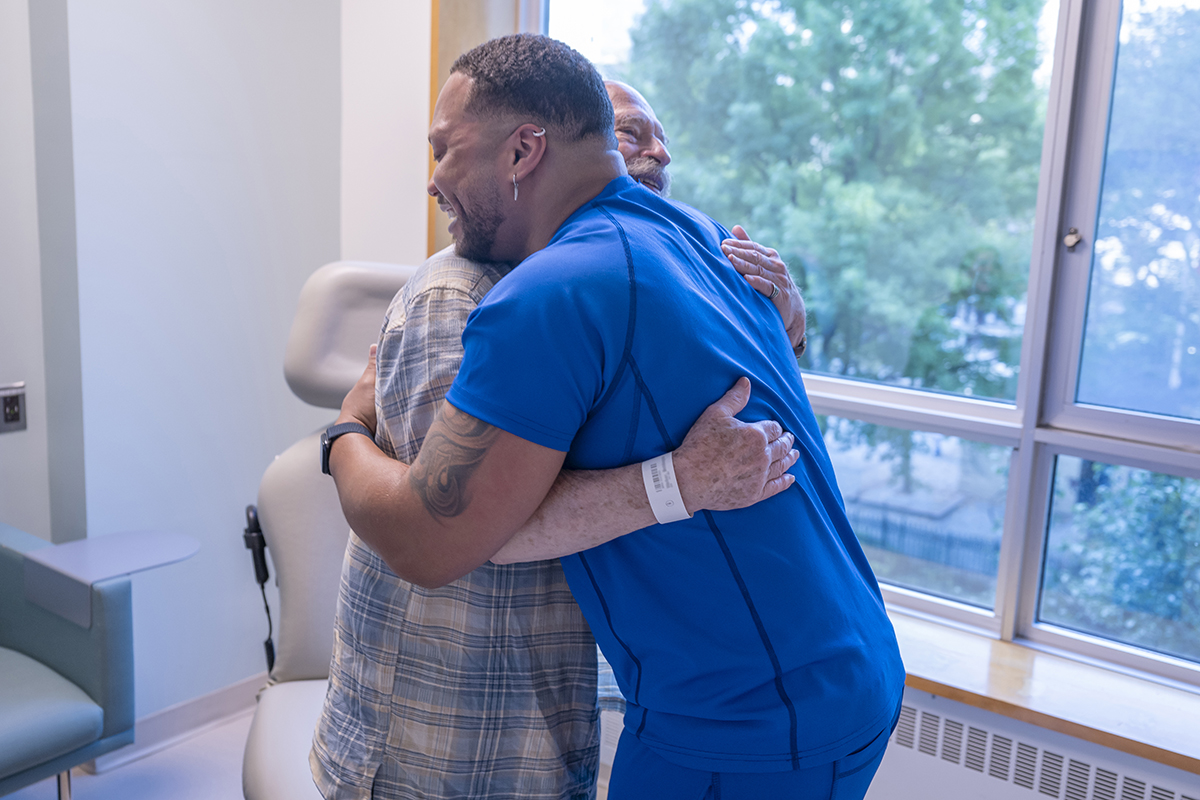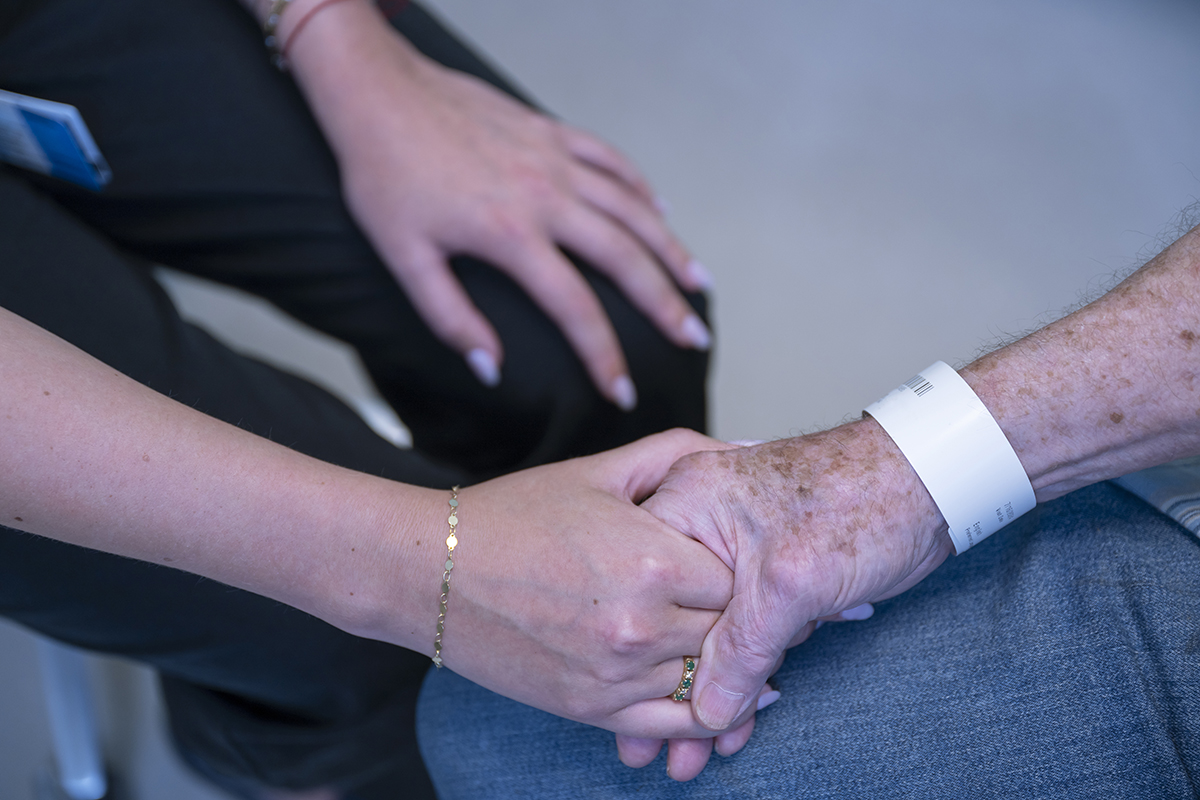
Their love story began 60 years ago, when Bobbie Walker married Barbara Ann Hursh just three months after they met.
“We became co-partners in this life we chose together,” says Bobbie, an artist and former art director at some of the most prestigious advertising firms in New York City. His friends called him “one of the original Mad Men.” Barbara was a dental hygienist, and they had two daughters.
Their bond was so deep that it transcended romantic love, says Bobbie. They couldn’t imagine life without each other. But then, in 2018, Bobbie learned he had cancer of the urinary tract.
“Barbara’s main concern was that she didn’t want to survive me and be here alone without me,” says Bobbie. Little did they know that he would be the one to survive her. Sadly, Barbara passed away in May 2023, after several months of suffering from abdominal pains that turned out to be advanced pancreatic cancer.
Now, at age 83, Bobbie is the one living alone and facing cancer, which has since spread to his lungs. His daughters live busy lives out of state, and there are no other nearby relatives to count on for companionship and support.
“Losing my partner and best friend after being together for 60 years has been much more difficult than the cancer because, with Barbara gone,” says Bobbie, “I don’t have a will to live to be a ripe old age.”
But even though he’s contending with advanced cancer without his wife, Bobbie is not alone. He says he’s finding strength and support from his care team at Memorial Sloan Kettering Cancer Center (MSK), especially his social worker, Sabrina Feldman, LMSW.
“Coming to MSK has become my social life, and my care team has become like family,” says Bobbie. I feel very grateful for them because this would be a much lonelier and scarier journey without this kind of connection.”

MSK’s Emotional Support for Patients
Of course, good cancer care requires sophisticated diagnostics and cutting-edge treatment options. But that’s only part of the equation. Patients also need experienced and compassionate care teams that offer an ear to listen, a hand to hold, and a shoulder to lean on during the toughest times.
“Whenever Bobbie comes for treatment,” says Sabrina, “I’m there to sit with him, hold his hand, and talk about everything but his cancer.”
She says she and her colleagues in the department of social work use several approaches to help people cope with cancer. One is “meaning-centered psychotherapy,” in which they talk about what’s truly meaningful to someone — their work, relationships, spirituality, and other sources of joy and comfort.
“We get to know the whole person and understand what matters to them,” explains Sabrina. “We help patients focus in on these lights in their lives that are sometimes hard to see when you’re suffering, isolated, or alone.”
Bobbie says he appreciates Sabrina’s interest in him as a person and likes the way her mind works. “Sabrina is a very curious and creative person, interested in art and history and we talk about everything. She really understands.”

A Couple’s Journey Through Multiple Cancers at MSK
When Bobbie was diagnosed with urinary tract cancer in 2018, his affected kidney was surgically removed at a New York–area hospital. When his surgeon recommended chemotherapy to eliminate any cancer cells left behind, he decided to get a second opinion at MSK.
He met with Dean Bajorin, MD, a genitourinary oncologist at MSK. “He recommended against chemotherapy so soon after surgery to avoid damaging the remaining kidney,” explains Bobbie, who says he immediately felt comfortable with his new doctor.
When the cancer later spread to his bladder, surgery and chemotherapy infused directly to the bladder brought the cancer under control.
“There was no question, we felt MSK was the place to be,” recalls Bobbie.
Then, another blow: In 2021, tests showed that the cancer had returned and spread to his lungs. On top of that, Barbara started having gastrointestinal problems during this time, and Bobbie became her primary caregiver.
“Dr. Bajorin picked gemcitabine because he knew Barbara was not well,” Bobbie explains. “He said, ‘In order for you to be a good caregiver at home, we have to give you a chemo that’s not going to make you too sick and make your life miserable.’” Bobbie’s tumors shrunk by 60 percent.
The chemotherapy helped for a while, but the tumors in his lungs began to grow again soon after Barbara died. He now receives immunotherapy treatment every month, which is keeping the cancer at bay.
Just as important to Bobbie is the warm connection he has with his team at MSK.
“The people at MSK are wonderful! They have a genuine way of communicating their concern for you, so they really are like family who care and understand what you are dealing with,” says Bobbie. “It feels really good to have that support system.”
Bereavement Support During Cancer
After Barbara died, Bobbie created a memorial of curated drawings, photographs, and paintings he had done over their 60-year relationship. “That was a helpful distraction for my grief, but when it was finished a year later, I began to feel more alone than ever before,” laments Bobbie.
His conversations with his social worker have been especially helpful during his bereavement. “Bobbie is going to feel profound loss forever. That doesn’t just go away,” says Sabrina. “Using his creativity and love of art as a way to honor her and the life she would want for him will help the grief not feel so persistent.”
She encouraged him to write about Barbara and how he felt about her. Sabrina explained that putting his words on paper was a therapeutic tool that could help him cope with his grief.
Her advice was just what Bobbie needed, he says. “The writing process helped me understand what made our relationship so incredibly powerful. Barbara was more than just a companion or a romantic love. I lost my best friend and my connection, and most people don’t understand this kind of loss.”
He says it helps tremendously that he and Sabrina check in with each other every week.

Asking for Help Isn’t Always Easy
For most people, having support after a cancer diagnosis can improve their quality of life.
“Patients who are supported through the physical, emotional, and social impact of cancer can feel less alone and isolated,” Sabrina says. But, she adds, not everyone with cancer needs the same level or type of support.
In fact, some people choose not to share their diagnosis, even when their family and friends are nearby and able to help.
“Some people worry about being a burden to their loved ones, or they don’t want to admit weakness and surrender their autonomy,” she says. “Others are from cultures where it’s difficult to talk about cancer. And sometimes, it’s just too exhausting to discuss their cancer experience.”
Some people need time to trust or warm up to their care team or feel their appointments should focus on medical issues. Or they may want to seem strong and are not honest about the difficulties going on in their life.
Sabrina works to build close relationships with patients, so she knows what’s happening in their lives and can make sure their care team is aware in case it impacts their treatment. “It’s up to the patient to choose what they’re comfortable sharing. They can decide to ask for help for some things and not others, like transportation, food, or just a social connection.”
She adds, “They don’t have to share everything with everyone, but allowing people to show up for you can really help with the fear, anxiety, and feelings of isolation that come up when going through treatment.”
The connection Bobbie has with Sabrina is so profound, he gave her one of his favorite photographs from the memorial he put together to honor Barbara’s memory. She proudly hangs it in her office, a reminder of how patients are much more than their disease.
Editor’s Note: It is with great sadness that we share the loss of Bobbie Walker, who later transitioned to hospice care in his daughter’s home and subsequently passed away. Our deepest sympathies are with his daughters and with all who cared for him.
How to Get Support at MSK
Social workers provide extensive emotional support throughout the cancer experience. They offer:
- Guidance for talking with children about cancer.
- Support for caregivers, as well as adolescents and young adults with cancer.
- Resources for life after cancer treatment.
- Bereavement support.
- Disease-specific support groups.
Other resources include:
- MSK’s Counseling Center.
- Chaplaincy to explore faith and spirituality.
- Integrative Medicine, which offers complementary therapies, such as yoga and guided meditation to help with stress, pain management, and other concerns.